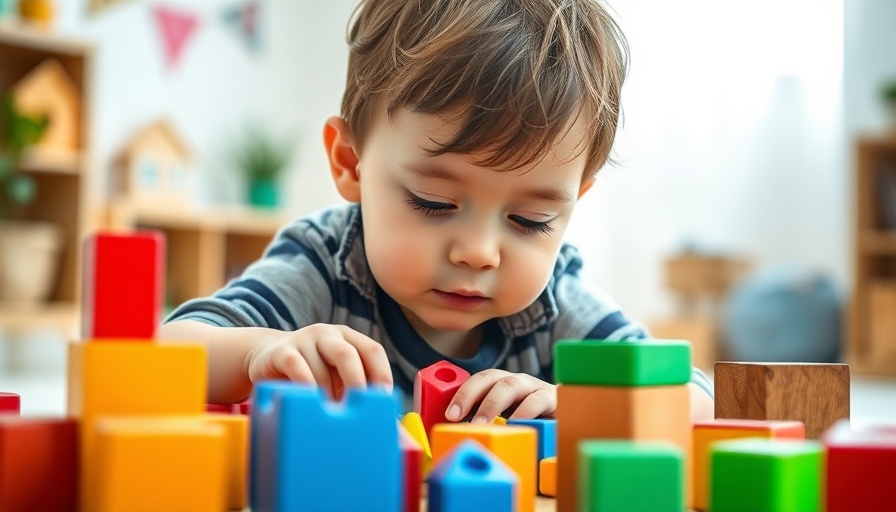
The Essential Role of Play in Child Development
Watching children as they immerse themselves in play is one of the most heartwarming experiences of parenthood. Through their imaginative play, children encounter a world of possibility where learning and fun coexist. As they engage with different objects, they not only enjoy themselves but also develop a profound understanding of their environment.
Learning Through Experience: The Science of Play
Take, for example, a child playing with various items in a pool of water. By experimenting—throwing pebbles and watching them sink, or floating leaves and rubber toys—they directly learn about buoyancy and weight. Such experiences can spark their interest further, encouraging additional cognitive development. This hands-on learning is reinforced through rich play experiences where children role-play as firefighters or fishermen, reinforcing their understanding while allowing them to recreate things they've seen or read.
Physical Play: Building a Foundation
Physical play is not just about having fun; it also serves as a critical developmental tool. Activities like chasing games, climbing, or spinning allow children to control their bodies, improve their physical coordination, and stimulate cognitive growth. Infants demonstrate this concept from an early age, as each new skill they acquire—be it crawling, standing, or walking—stems from their instinctive play. According to experts, sensory stimulation during these activities enhances concentration and learning abilities, reinforcing the notion that active play is foundational.
Fine Motor Skills and Cognitive Development
Equally vital are the games designed to develop fine motor skills. From clasping objects in infancy to stacking blocks and working with construction sets, these activities prepare children for skills they will rely on throughout their lives, such as writing and creating. Importantly, the control they gain through these interactions naturally translates into cognitive benefits, allowing them to witness cause and effect as they build and create.
The Power of Imaginative Play
As children approach the age of two, role-playing starts to unfold, and the importance of imaginary play cannot be overstated. Engaging in scenarios where they dress up as superheroes or play with dolls provides a unique opportunity for creative expression. Through these enactments, they process experiences that resonate with them, enhancing both creativity and their social skills, including communication and emotional expression.
Countering Modern Pressures: The Case for Unrestricted Play
In a world increasingly filled with structured activities and screens, the benefits of unregulated and spontaneous play are often overlooked. Experts warn that excessive screen time, loss of outdoor spaces, and rising academic pressures threaten traditional play, which is essential for healthy psychological and emotional development. As the United Nations recognizes play as a fundamental right for children, it becomes crucial to safeguard this vital aspect of childhood.
Creating Opportunities for Rich, Engaging Playtime
To foster an environment where play thrives, parents and caregivers must prioritize open-ended play. Providing flexible materials—like blocks, sand, or natural elements—allows children the freedom to be innovative and to explore. Engaging in play with children can greatly enhance their experiences. By participating in their play, adults can help children navigate challenges, encourage creativity, and build strong relational bonds.
Future Predictions: The Impact of Play on Lifelong Skills
As the current social climate continues to shift, valuing play in educational settings and at home can set the foundation for healthier, well-rounded adults. Investing time in encouraging play can lead to longer-term benefits such as improved problem-solving abilities, enhanced emotional intelligence, and healthier relationships. If society embraces play as integral to development, we prepare our children not just for the challenges of childhood, but for the complexities of adulthood.
In conclusion, it is clear that play is not simply a pastime for children; it serves as the bedrock for their physical, cognitive, and social development. By understanding and investing in the power of play, parents and educators can significantly contribute to a child's preparation for a complex, rapidly changing world.
 Add Row
Add Row  Add
Add 




 Add Row
Add Row 

 Add
Add
Write A Comment